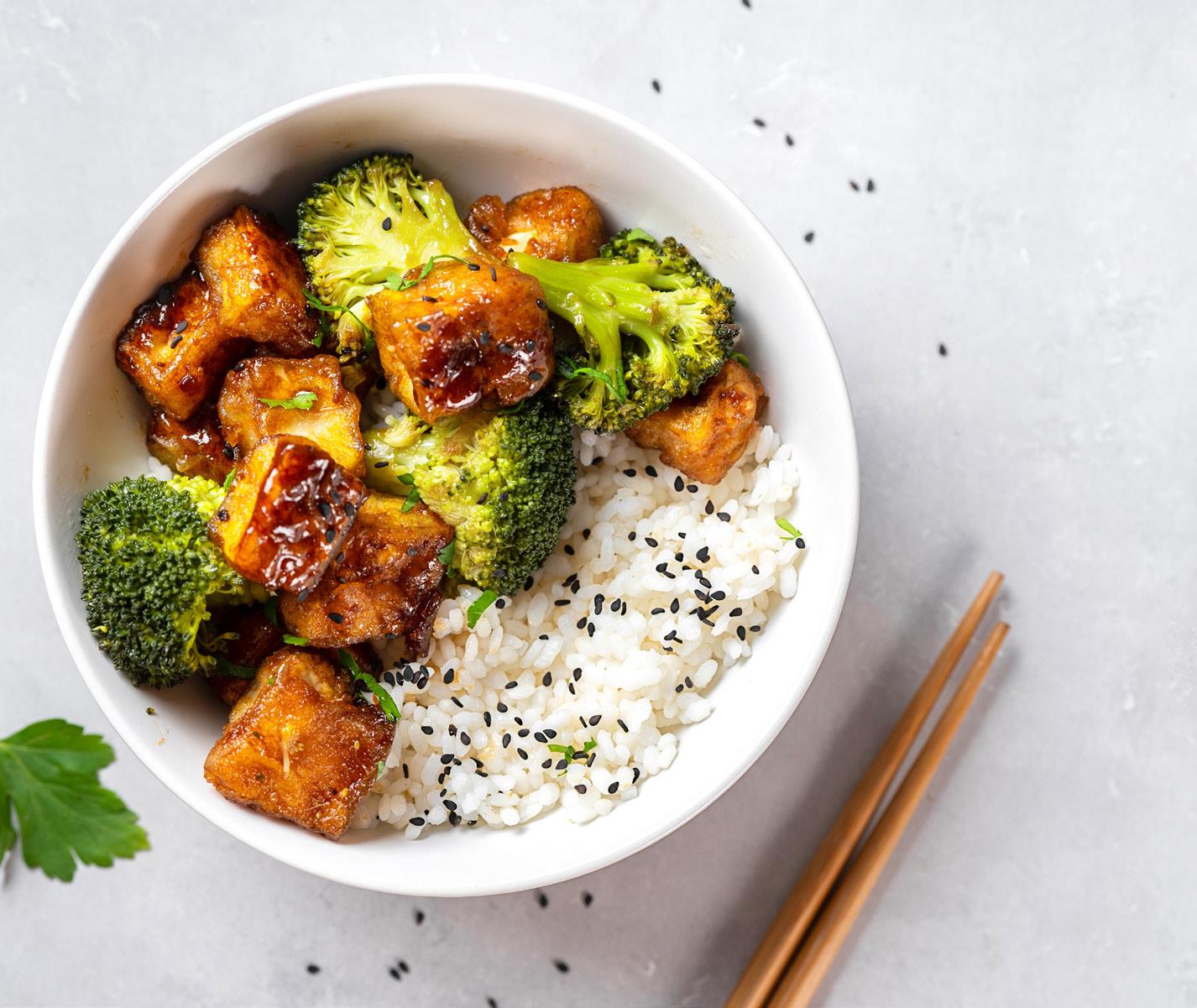
2 minute read
Better for you, not best for you: Consumers want products that they deem to be guilt-free and conveniently nutritious
Proportion of consumers who say that they have snacked more as a result of COVID-19
26% 37%
20%
14%
April 2020 May 2020 July 2020 February 2021
Source: COVID-19 survey series – April 2020-February 2021 (2,000 respondents)
Proportion of consumers who say that they are turning to comfort foods more frequently as a result of COVID-19
49% 49%
36%
24%
April 2020 May 2020 July 2020 February 2021
Source: COVID-19 survey series – April 2020-February 2021 (2,000 respondents)
Natural blueprint:
Consumers want reassurance that ingredients are real and authentic
Consumers in China are becoming more attentive of the ingredients in the food and drink products that they purchase. This trend will intensify as consumers continue to become more risk averse and more health conscious. As such, natural claims will become of even greater importance when seeking out products. This is because consumers want ingredients that they deem to be real and authentic and they want to avoid ingredients deemed to be detrimental to themselves and the wider environment.
Irrespective of the attention given to the growing popularity of functional ingredient claims, natural claims remain a priority for consumers in China and, after price and taste, are the product attributes that consumers will be most attentive to. Natural claims are associated with a variety of benefits such as products being healthier, safer, local, and better quality, and are becoming more important to consumers as a result of the pandemic. Natural claims further appeal to consumers as they adopt a back-to-basics approach to nutrition and turn to everyday food and drink products that they know and trust to boost health.
It is worth noting that natural claims are of high importance to consumers in product categories that are deemed better-for-you and those inherently associated with indulgence. The importance of natural claims in categories associated with indulgence (such as chocolate and confectionery), reflects how consumers are seeking out products that they deem to be guilt-free and how they associate natural and free-from claims with this.
While consumers have favourable perceptions of natural products, they can also demonstrate scepticism towards such claims. They can further demonstrate this scepticism towards similar claims such as sustainable and local because of the degree of subjectivity around such claims. Scepticism can be linked to consumers becoming conscious about the practices and policies of brands and manufacturers, questioning whether they have their best interests at heart. As such, it will be more important than ever that brands look to validate claims around natural formulation (and locality and sustainability) so products are deemed to be green and clean.
Consumers will also find streamlined ingredient lists appealing, as well as simplified nutritional labelling which enables them to make an informed and controlled decision about the formulation of products.
Source: COVID-19 survey – February 2021 (2,000 respondents)










